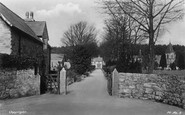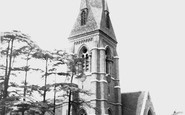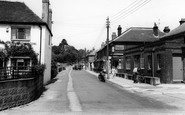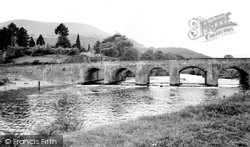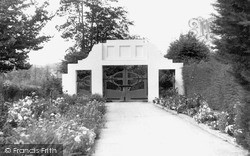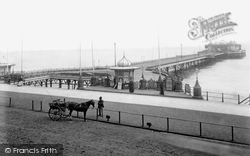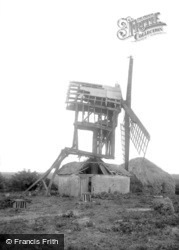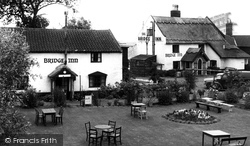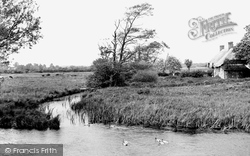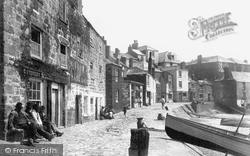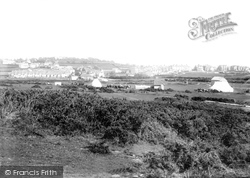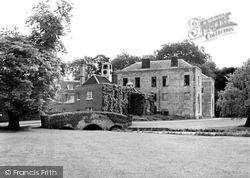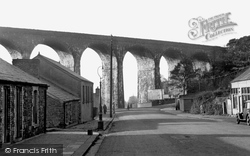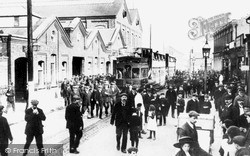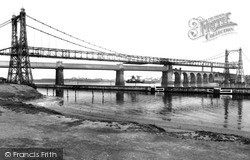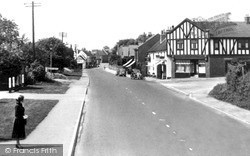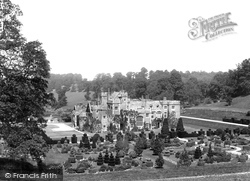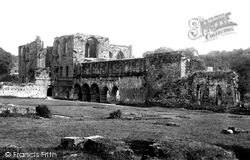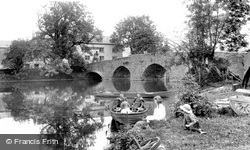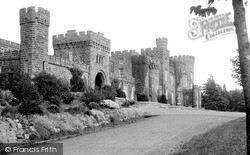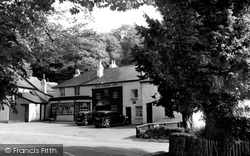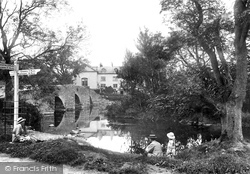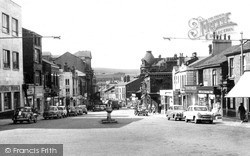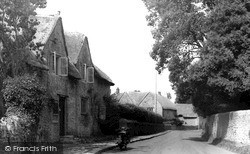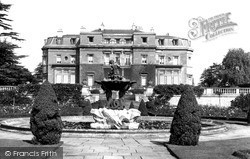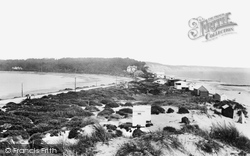Places
Sorry, no places were found that related to your search.
Photos
5 photos found. Showing results 641 to 5.
Maps
83 maps found.
Books
Sorry, no books were found that related to your search.
Memories
1,127 memories found. Showing results 321 to 330.
St John's C Of E Primary School
I attended St John's from 1952 to 1959. This was an all girl's church school with about 60 children in three classrooms, with a hall where we had dinner and danced to the BBC's "Music and Movement". We used ...Read more
A memory of West Hendon in 1952 by
St James Cinema
I remember the pianist who played for a week at the St James, I had forgotten what he was called until I saw your entry. A few years later I worked at the St James as a projectionist with a Mr Bell; there was a Miss Greenan who ...Read more
A memory of Harrogate in 1959 by
St Fagans
I was so pleased to find these photos of the gardens, as there don't seem to be very many around. My grandfather Trevor Dimond was the head gardener there. He started just after the war and was there for 30 years and boy, did he and his ...Read more
A memory of Wenvoe by
St Clare's 1961
We were at Pantasaph in the summer of 1961 for 6 months; we were the Sprague's, Pauline aged 12, Barbara aged 8 & Josephine aged 6. We remember the McCabes & Veronica Murtough, in fact Veronica turned up in my life years ...Read more
A memory of Pantasaph by
St Andrews Church
St. Andrews Church figured quite prominently in my early teens as it was my parish Church. Although not a religous person, I had to go the Church at least once a month as I belonged to 6th Uxbridge Scouts who were a Church Group, ...Read more
A memory of Uxbridge by
Spring Lane Post Office
Where have the years gone? I remember walking to the chip shop in Spring Lane to get my chips and gherkins when I was pregnant (can't eat them now). Also the good old Post Office where my ex saw an advert for Labrador ...Read more
A memory of Bishopstoke in 1960 by
Sparking A Memory Of Rnwt Station New Waltham
I was based here in 1972, as a very young RN Radio Engineer. Antony’s memory sparke a few of my own. Long nights in the transmission hall monitoring an old B&W TV to make sure we weren’t ...Read more
A memory of New Waltham by
Southend On Sea In The 50's
Southend-on-Sea in the 50’s At the housing estate in Mitcham where we lived they had a tenants association. Every Friday night, two of the committee would go round to the Elm Court flats in Mitcham, where we ...Read more
A memory of Southend-on-Sea by
Southall Memories
My parents, who came to England from India in 1955, when I was 3 months old, moved to Southall in 1959, from Whitton, when I was 4. I remember Southall Broadway at that time-there was actually a saddlery business there! C. ...Read more
A memory of Southall by
South Weald School
My memories of St Peter’s school South Weald - starting in 1956(?) I started, in what I seem to remember as the ‘pre-fab’ classroom in the lower playground with, I believe, Mrs Fox as my first teacher. We had slates and ...Read more
A memory of South Weald in 1956 by
Captions
1,233 captions found. Showing results 769 to 792.
There seems to be ample room beneath the wide arches of Llanfoist Bridge, but when the Usk floods the waters have often risen to the top of them and flooded the Castle Meadows in the foreground
The entrance arch, with its green gates, was demolished in the 1980s to allow access for lorries building the new leisure centre.
The pier has since been much built on, with varying degrees of success.
Looking very much a shadow of its former self, this windmill would have ground corn. In common with other mills in the area, it is a post mill, with the mill revolving round the central post.
The now much enlarged thatched house on the right is the only Bridge Inn building standing today; the left-hand one has been demolished.
Thatched cottages (right) stand between Woolbridge Manor and the River Frome, looking upstream from the five mediaeval arches of Wool Bridge.
The road is very different to its modern counterpart, and reflects how much the sea was the main way out of St Ives. Cars pass by today where boats were once pulled up on the beach.
Before the new resort grew up across the landscape, much of the countryside around the old village was open downland along the breezy coastal strip.
The house looks much the same today, though it is now a conference centre. The bridge in the foreground is 18th century, built of brick rubble with a moulded parapet.
The line is long-since closed, but this towering sixteen-arch structure stands as a lasting reminder of Victorian skill and energy.
The 775 employees at Wolverton Works in 1851 grew to 2,000 by 1860, with the LNWR the largest single employer in North Bucks; a company engine driver earned nearly four times as much as an agricultural
there has been considerable investment in rejuvenating and developing the town, so much so that apparently property prices in and around the town are now rising faster here than in
Mickleover, still known as 'the village' to its residents, is today not much more than a dormitory town to nearby Derby.
Much of the stone came from the ruined Fulbrook Castle, which had been given to William de Compton by Henry VIII.
Much of the stone came from the ruined Fulbrook Castle, which had been given to William de Compton by Henry VIII.
This view shows the late Norman arches of the cloisters. After the Dissolution of the Monasteries (1536-9) it became the property of Thomas Cromwell and soon fell into disrepair.
In the background is the 16th-century five-arched bridge which gave the village its name.
Not so much a castle as a huge castellated mansion, Cyfarthfa stands near Merthyr Tydfil and was built in 1825 for Robert Thomas Crawshay, a wealthy iron-master.
In previous centuries the old taverns hereabouts were much used by smugglers, who had brought into the Forest the contraband they had landed on the south coast.
A family picnic by the five-arched bridge originally built in the 16th century over the River Leven.
The buildings have not changed much, but the street has lost its hustle and bustle. Car parking was allowed at this time.
The street remains much the same today.
Much of the Hoo's 1053 acres of parkland were designed and laid out by Capability Brown in the 18th century.
The area has been much built upon in the century since this photograph was taken.
Places (0)
Photos (5)
Memories (1127)
Books (0)
Maps (83)

